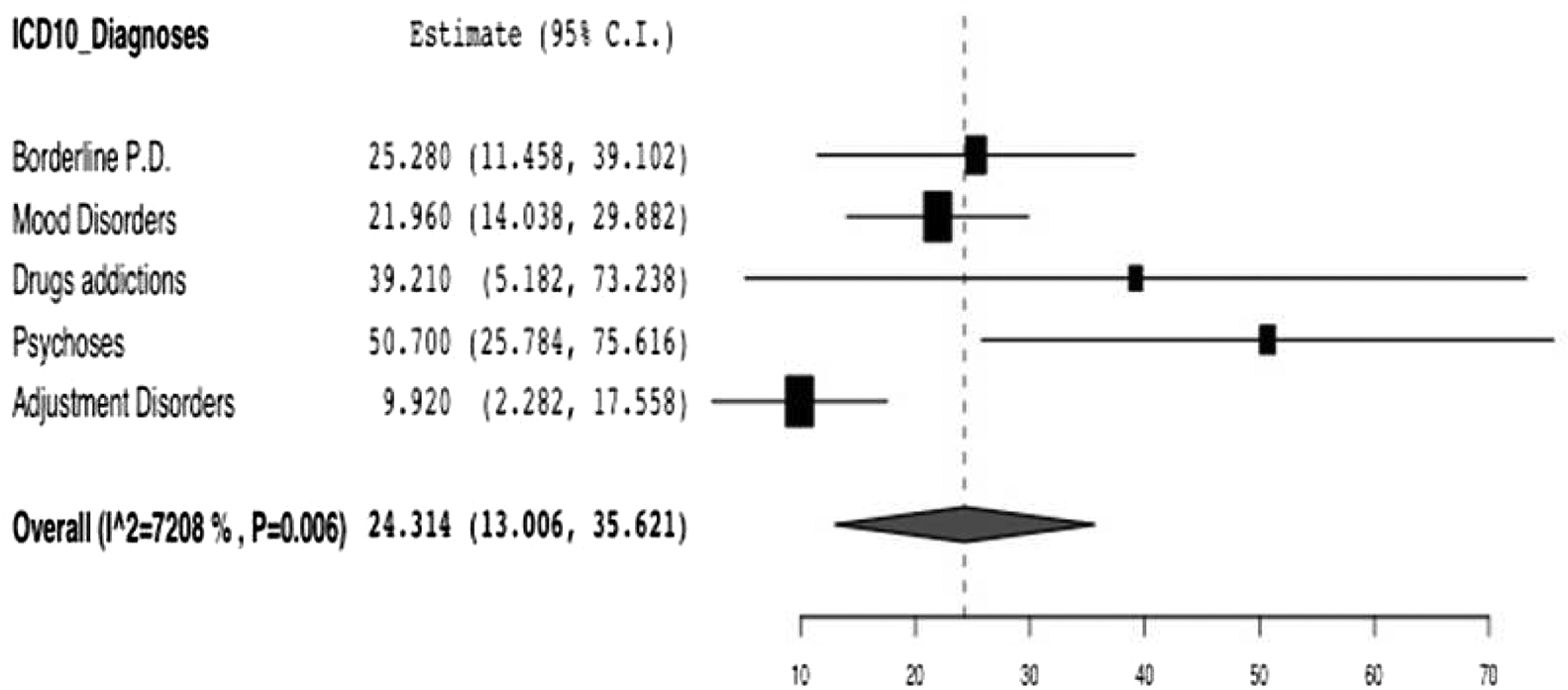
Fig. 1 Meta-analysis of length of admission in hospital according to diagnoses.
Published online by Cambridge University Press: 23 March 2020
In recent years, psychiatry in the United Kingdom has faced an important challenge due to the shortage of beds for patients with increased lengths of stay. Available resources have been saturated due to the reduced capability of psychiatric hospitals to provide spaces for patients needing access to psychiatric care.
This research provides a figure of length of stay linked to psychiatric pathology at discharge.
To establish the length of admission of psychiatric patients.
The sample comprised 137 discharges from a general adult psychiatric ward distributed over the first 8 months of 2016. Results were analyzed by descriptive statistics and meta-analysis.
Overall, longer periods of admission were recorded for psychoses and shorter periods for adjustment disorders. Psychoses had a median length of admission of 28 days (range = 3–374); borderline personality disorders, 10 days (range = 1–249); mood disorders, 14 days (range = 2–74); drug addictions, 6 days (range = 1–222); and adjustment disorders, 5 days (range = 1–55). Meta-analysis (Fig. 1) provided a confidence interval estimate for the whole model of 24.314 days (95% CI = 13.00–35.621) with P < .001. Meta-analysis results also provided t2 = 101.061, Cochrane's Q (df = 4) = 14.327, I2 = 72.081, with P = .006.
Psychoses are conditions that require longer admissions, whereas adjustment disorders are more transient pathologies. Borderline personality disorder is somewhat of a hybrid condition. Overall, patients remain in hospital for about a month (24 days).
The authors have not supplied their declaration of competing interest.

Fig. 1 Meta-analysis of length of admission in hospital according to diagnoses.

Fig. 1 Meta-analysis of length of admission in hospital according to diagnoses.
Comments
No Comments have been published for this article.